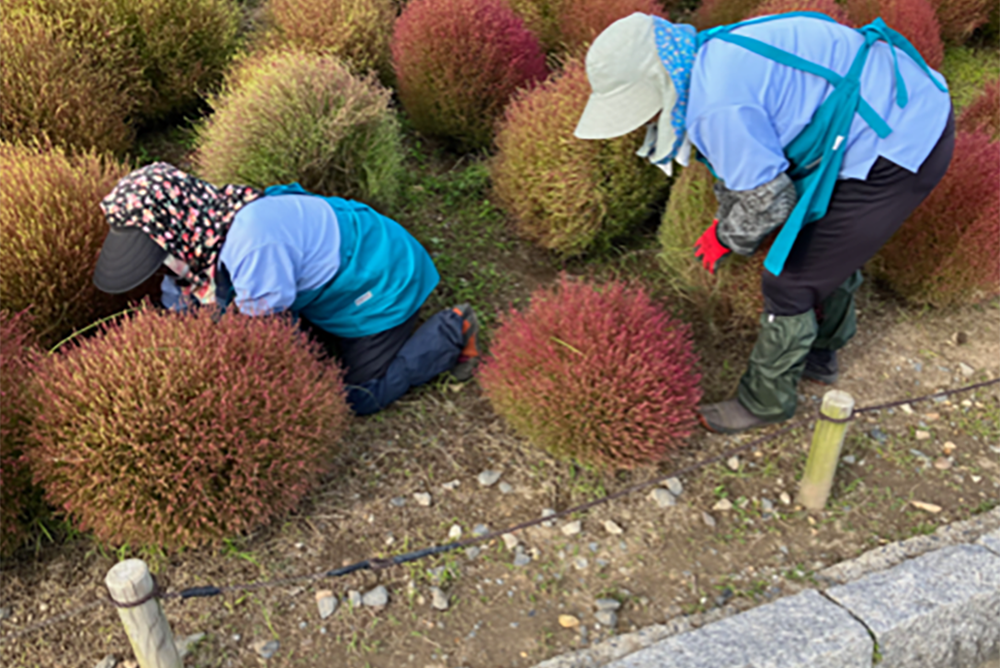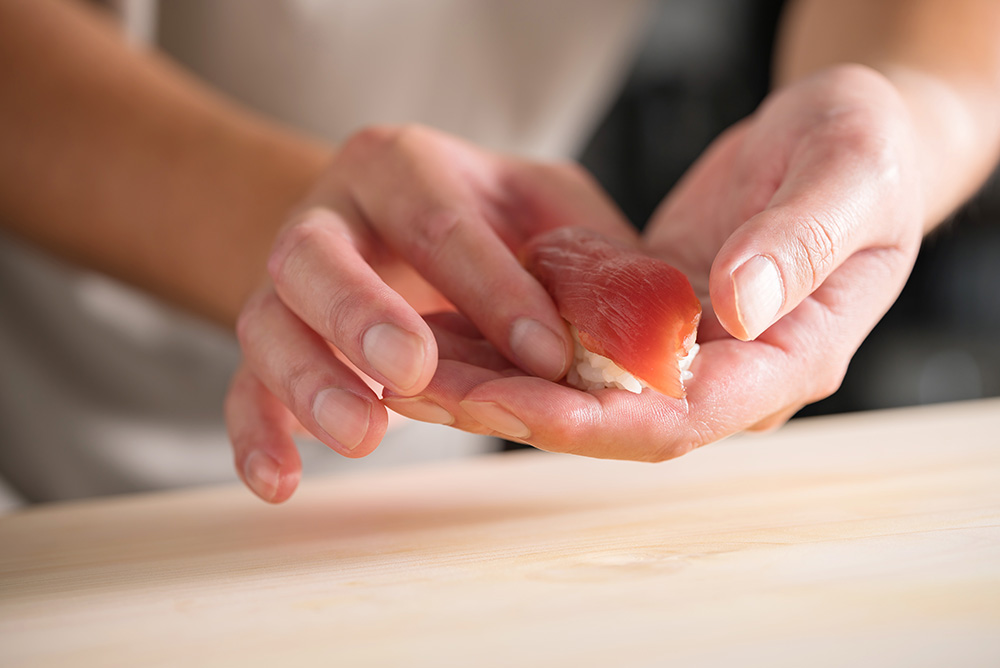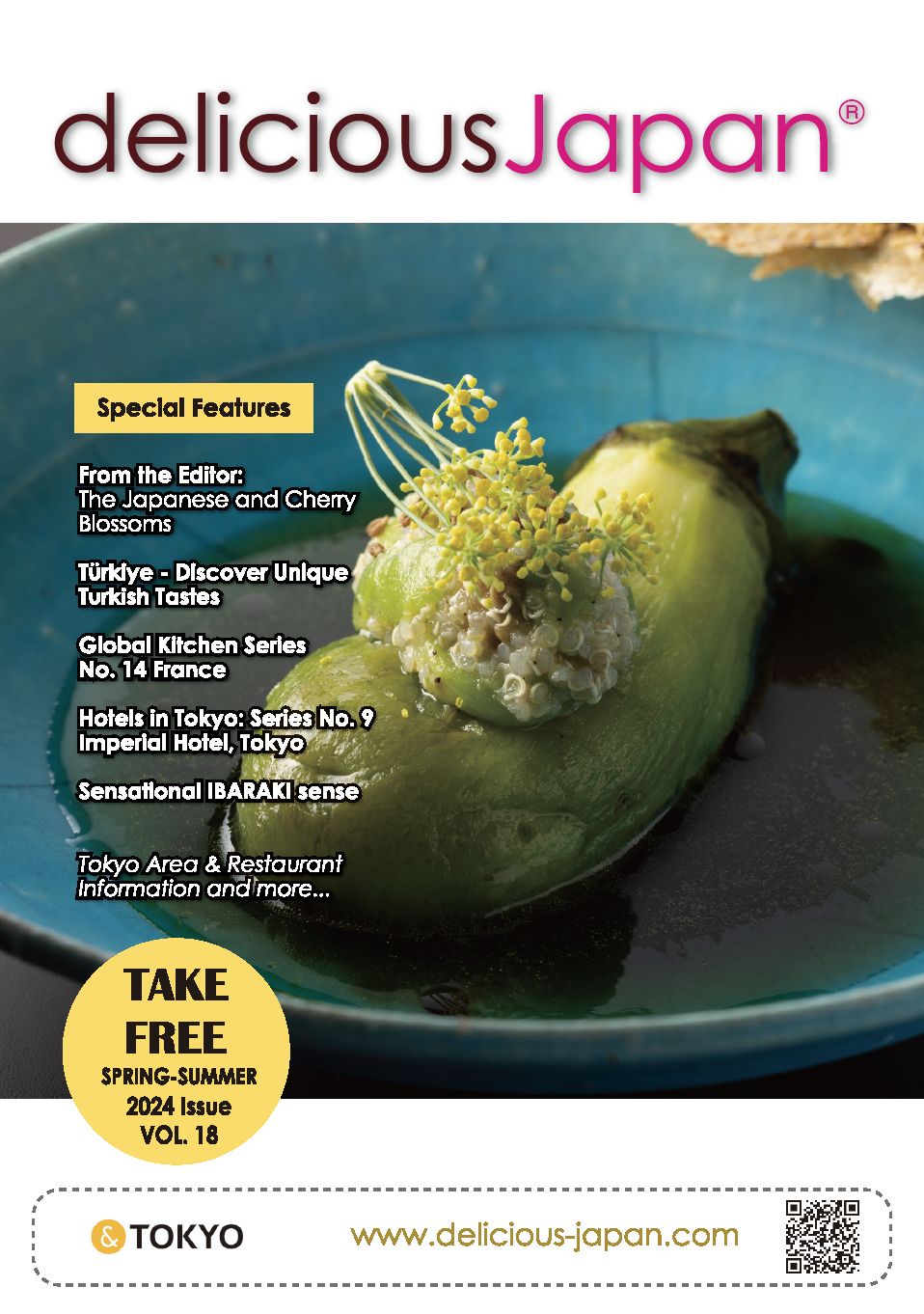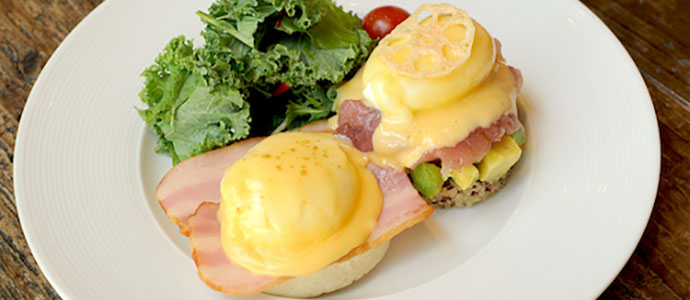

Brighten Up Your Morning at Eggcellent
Interviewing Nozomi Jinguji, COO of eggcellent
Why did you start eggcellent?
As I travelled around the world in my former job, I realized there was a gap between the breakfast cultures of Japan and abroad. While the breakfast culture is developed and widely spread in foreign countries, the number of places where you can eat breakfast in Japan is limited. If you can spend a wonderful morning, your day or life would become more fulfilling. From the hope to spread the breakfast culture in Japan, I started eggcellent.
Which country’s breakfast culture were you most inspired by?
In Asia and any other countries across the globe, food markets and food stands are open from early in the morning. In the US or Europe, I would often see people drinking beer in the morning. I felt these are the things that Japan is lacking. Many Japanese people are happy to pay 5,000 yen for dinner, but not for breakfast. We still have a long way to go in changing the minds of these people.

Tell us about the concept of your restaurant.
We value breakfast culture and breakfast. The food is of course very important, but the interior design using natural materials are also a key point. I want this restaurant to be somewhere you want to visit every day.
Why did you choose eggs as the main theme?
It’s not like eggs were my all-time favorite, but I was in shock from how delicious egg benedicts were when I tried it for the first time. Since then, I decided to center my theme on eggs to deliver my message on breakfast culture.
What’s special about the tableware and interior decorations?
I write short messages on all the coffee cups. Having a nice cup of coffee is of course enough, but I want to provide that extra happiness. I purchased the interior decorations from abroad and hand carried. Some of the chicken ornaments are from Napa Valley and Paris, and the paintings are from Hawaii.
Tell us about the organic eggs you use.
The eggs are directly shipped every morning from a Kurofuji Farm in Yamanashi prefecture. I chose this farm after seeing 20-30 farms and even tried their feeds. Eggs produced in a separate henhouse just for our company cost 10 times more than ordinary eggs, but we can assure the high quality of each egg.
What are your ideas on organic products?
Organic is just a certification, but it takes time and money to get that certificate. I don’t want to focus too much on the certifications. I chose the current egg farm because they had a nice background story. In case of other products, it doesn’t mean that pesticide-free is always good because some pesticides are safe. I value the idea that each product carries the message of the producers and those products become part of our soul when we eat them.
What is the most recommended menu?
Egg benedicts. The most popular is the half and half egg benedict of bread and rice – a dish that more than half of our customers order. I wanted to start a Japanese egg benedict menu using rice in which people can enjoy like the traditional Japanese breakfast, “tamago kake gohan (egg over rice)”.
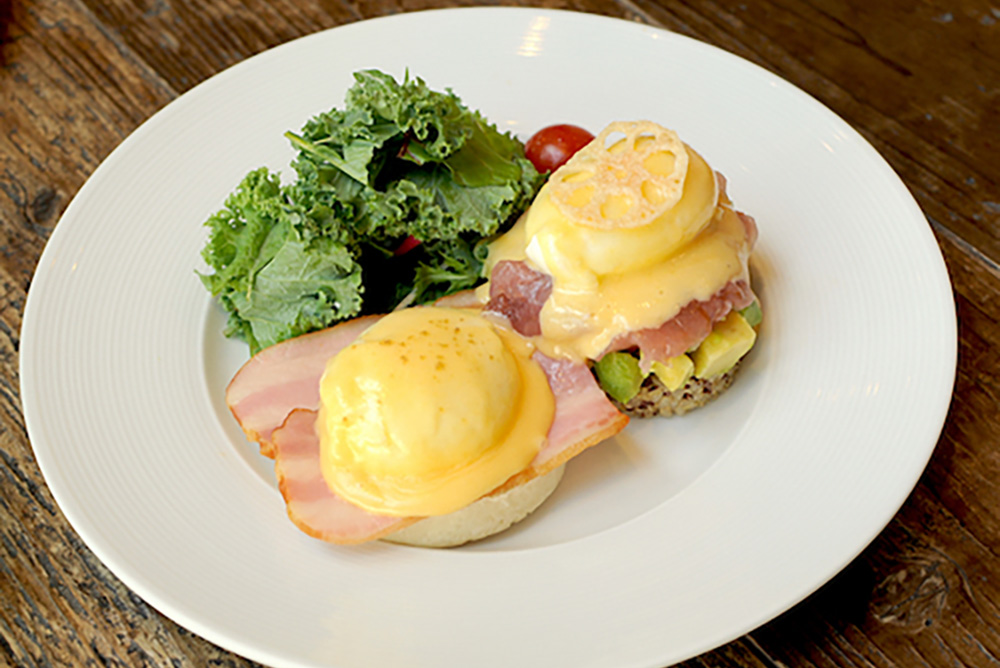
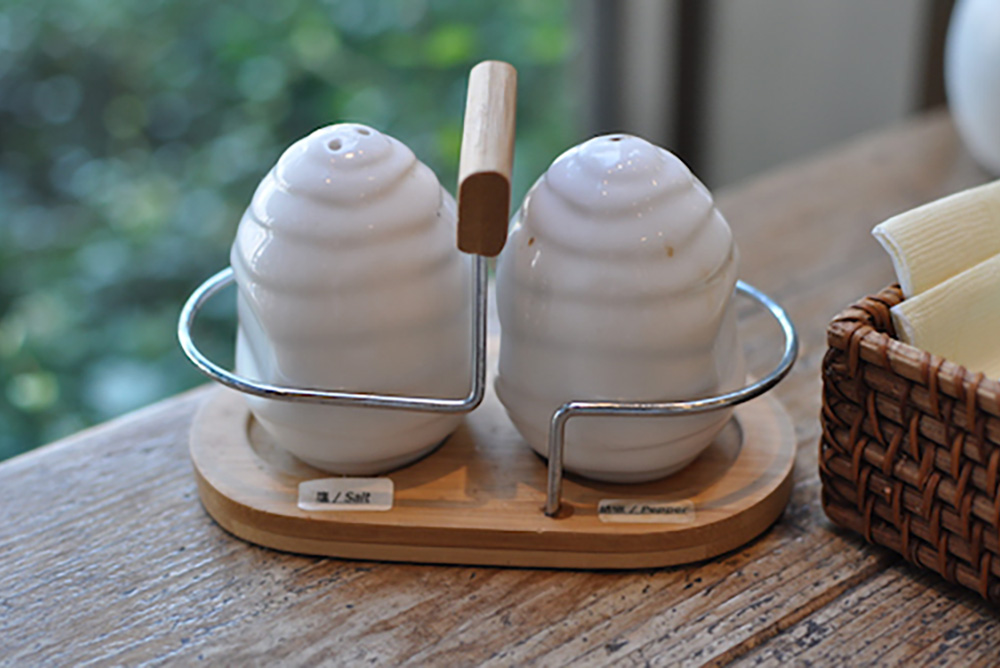
Tell us about your egg tart shop.
Our stores in Shiroganedai and Omotesando are egg tart specialty stores. Shiroganedai is an egg tart factory so you can eat freshly baked egg tarts. They also serve breakfast too. The Haneda branch was the first egg tart store and it started from there.
What do you think of the situation of organic and superfood in Japan?
If many people say that organic won’t spread, it won’t spread. Organic products will become the standard market price once it becomes available in any shop. We need to have a strong commitment until that happens. If the majority keeps looking for cheap products and refrain from purchasing organic products because of its high price, it will never become the market standard. Keeping a strong mind to spread organic is important.
What are some of the challenges you are facing?
It’s difficult to equally educate our staff with information on organic products and other ingredients. The story changes as it is passed on from one staff to the other. My challenge is to educate all our staff so that they would have the same answers.
What are your plans for the future?
I want to introduce Japanese breakfast culture to the world and liven up the breakfast scene in Japan. I’m thinking of approaches other than eggs. For example, a nice coffee mug would make you want to get up earlier than usual and a handcrafted plate would make you want to make breakfast. I want to try new things that brighten up your morning.

